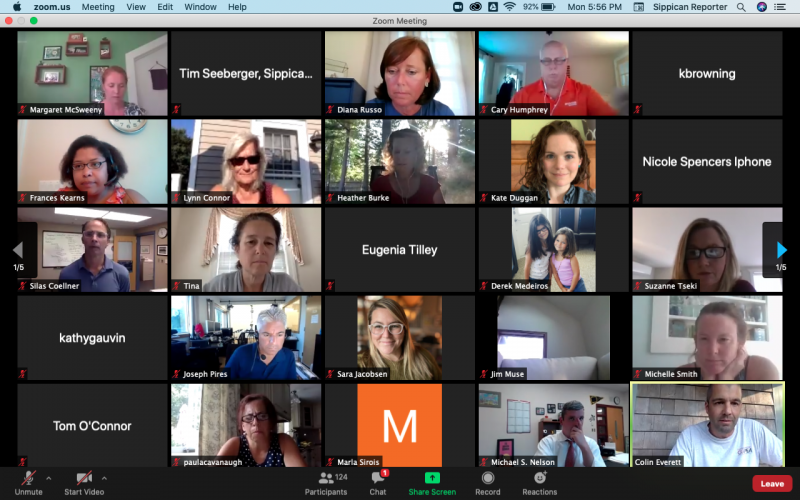Hybrid plan fully approved with ORR school committee OK
MATTAPOISETT — In a unanimous vote, the Old Rochester Regional School Committee approved of the district’s hybrid plan to return to school in the fall at an Aug. 10 meeting. This marks the final approval from all four school committees in the district, meaning the plan will be used in the fall.
Though Superintendent Michael Nelson gave three similar presentations at different school committee meetings in the last week to go over the 49-page plan, committee members and parents alike still voiced questions and concerns for its implementation when school starts on Sept. 16.
The plan will break up students into two cohorts by last name. On Mondays, all students will learn remotely, and the cohorts would alternate in and out of school throughout the rest of the week.
Students also have the option to learn in a full remote setting and can switch to a hybrid model at any time. At this time, the district is not considering a full student return in the fall. As with the entire plan, this is subject to change.
The junior high school will use block scheduling to incorporate mask breaks and safe class transitions for students in-school, and teacher check-ins for students online. In the high school, the block scheduling will look nearly the same as it normally would.
Unlike the elementary and junior high, high school students will not stay with the same set of students throughout the day. Asked by committee member Suzanne Tseki about this, Devoll said that the extended 15 minutes in between blocks would allow students to safely go from class to class.
Committee member Frances Kearns asked how the school will pay for the personal protective equipment for students and staff. Nelson said that the school has access to extra funding from Plymouth County through the federal Coronavirus Aid, Relief, and Economic Security Act.
On the subject of masks, Kearns asked the administration about the personal discipline required to consistently follow safety procedures since wearing masks and cleaning down surfaces is something that is not part of everyone’s daily routine.
Nelson said that the district’s subcommittee on policies will meet to discuss rules for areas like masks or remote learning.
He said that the school would work with students before using punishment.
“Accountability is the most important thing,” Nelson said.
The district will also need smart devices for every student. Nelson explained in response to a question from committee member Heather Burke that every school in the district received $12,000 from one grant, and another $160,000 from another grant.
Kimberly Ward said during the spring, the school did not communicate well about mental health.
She said that many students are facing problems and the school hasn’t provided them assistance such as numbers for crisis hotlines (such as 1-800-273-8255 for the National Suicide Prevention Hotline.)
Nelson said that, as with the entire plan, that “the planning doesn’t stop tonight” and that it could be addressed.
Responding to a question on the subject from committee member Margaret McSweeney, Nelson said that the school psychologist will be on the front lines, helping students and families who are struggling.
While many committee members and teachers offered praise for the work that went into the planning, one parent criticized the district’s work in the spring and the uncertainty of the fall.
Chris Welch said for his three kids in Sippican School remote learning was a “total failure.” For the fall, “I don’t see much success in round two.”
He asked the administration what it would take to get his three elementary school students and two high schoolers back in school with everybody in the fall.
“In-person is what we all want,” said Nelson. He said that, in an ideal world, everybody would be back in school.
“I guess it’s the answer I have to accept,” said Welch.












